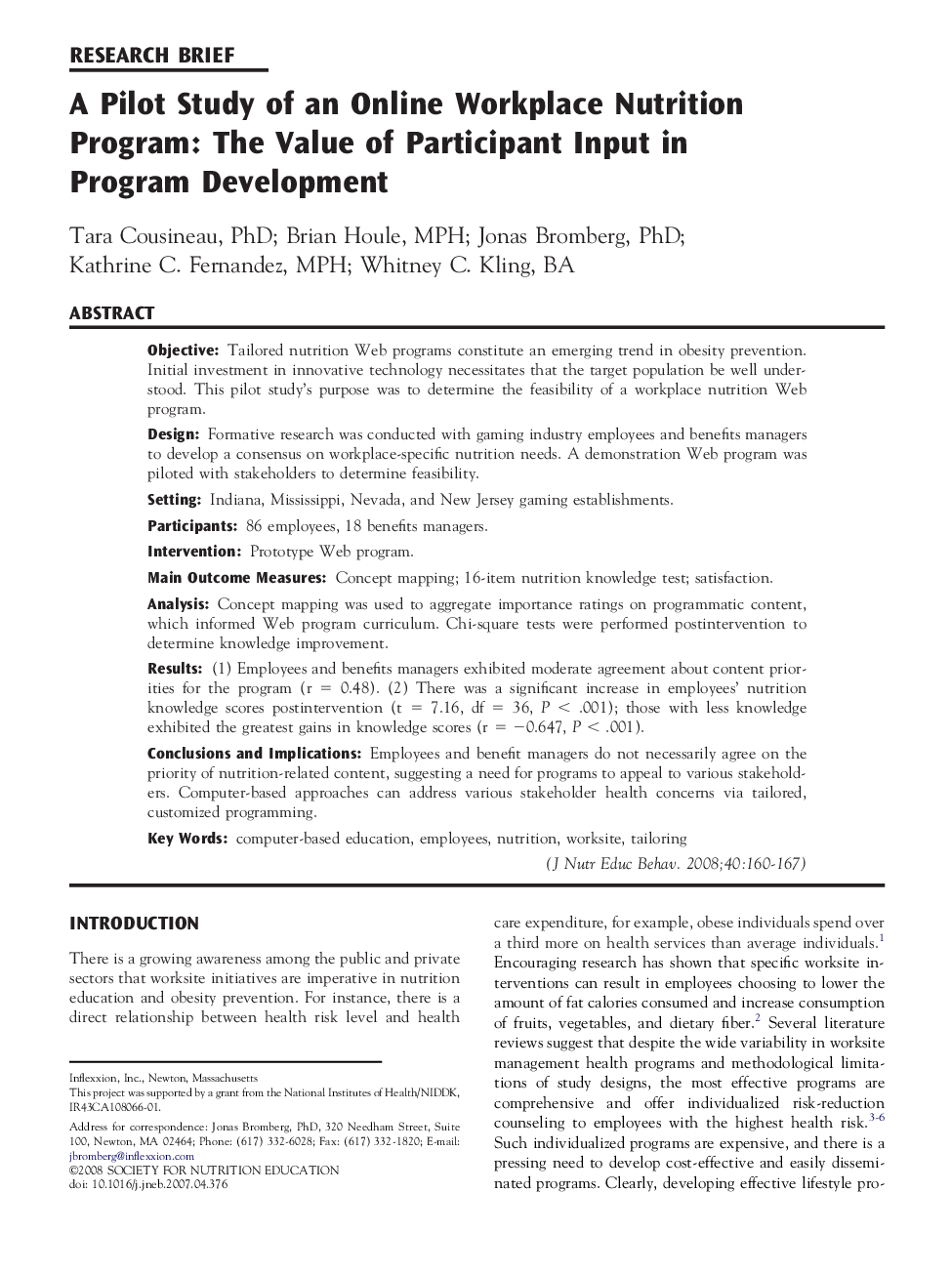| Article ID | Journal | Published Year | Pages | File Type |
|---|---|---|---|---|
| 362894 | Journal of Nutrition Education and Behavior | 2008 | 8 Pages |
ObjectiveTailored nutrition Web programs constitute an emerging trend in obesity prevention. Initial investment in innovative technology necessitates that the target population be well understood. This pilot study's purpose was to determine the feasibility of a workplace nutrition Web program.DesignFormative research was conducted with gaming industry employees and benefits managers to develop a consensus on workplace-specific nutrition needs. A demonstration Web program was piloted with stakeholders to determine feasibility.SettingIndiana, Mississippi, Nevada, and New Jersey gaming establishments.Participants86 employees, 18 benefits managers.InterventionPrototype Web program.Main Outcome MeasuresConcept mapping; 16-item nutrition knowledge test; satisfaction.AnalysisConcept mapping was used to aggregate importance ratings on programmatic content, which informed Web program curriculum. Chi-square tests were performed postintervention to determine knowledge improvement.Results(1) Employees and benefits managers exhibited moderate agreement about content priorities for the program (r = 0.48). (2) There was a significant increase in employees' nutrition knowledge scores postintervention (t = 7.16, df = 36, P < .001); those with less knowledge exhibited the greatest gains in knowledge scores (r = −0.647, P < .001).Conclusions and ImplicationsEmployees and benefit managers do not necessarily agree on the priority of nutrition-related content, suggesting a need for programs to appeal to various stakeholders. Computer-based approaches can address various stakeholder health concerns via tailored, customized programming.
